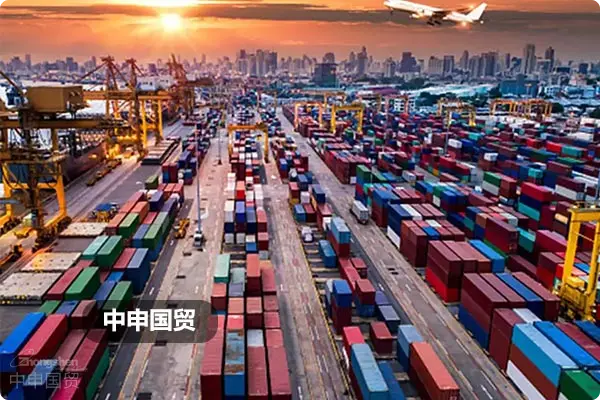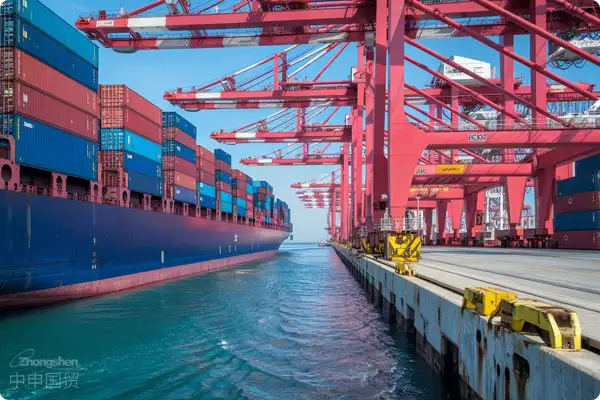- Shanghai Zhongshen International Trade Co., Ltd. - Two decades of trade agency expertise.
- Service Hotline: 139 1787 2118

This article provides an in-depth exploration of electromechanicalExport Representationindustry conditions and operational processes, while introducing key considerations and contract management points to help small and medium-sized enterprises expand into international markets, leveraging professional expertise for successful global expansion!
With the development of global economic integration, an increasing number of enterprises are entering the field of international trade. As one of Chinas key export commodities, electromechanical products have seen growing attention to their export agency business. This article focuses on the keyword electromechanical export agency to provide detailed information about relevant industry conditions, operational processes, considerations, and contract content.
I. Industry Conditions
According to data from Chinas General Administration of Customs, Chinas electromechanical product exports have maintained steady growth in recent years. In 2019, Chinas electromechanical product exports reached $1.45 trillion, a year-on-year increase of 4.4%. Among these, machinery equipment, electronic products, and automobiles accounted for a significant proportion of export value.
However, electromechanical product exports involve numerous stages such as product R&D, production, sales, and transportation, requiring enterprises to possess strong comprehensive capabilities and professional expertise. For many small and medium-sized enterprises with limited resources, independently completing electromechanical product export operations can be challenging. Therefore, selecting professional electromechanical export agency companies has become an important pathway for them to expand into international markets.
II. Operation Process
The operational process of electromechanical export agency typically includes the following stages:
The agency company will first conduct in - depth research on the US electrical appliance market, understand market demand, competition, policies and regulations, etc., and provide clients with accurate market analysis and suggestions.
The agent company will formulate corresponding promotion plans according to the product characteristics of the enterprise and the needs of the target market, including advertising, participating in exhibitions, building websites, etc.
Examples:The agency company identifies significant overseas market demand for a particular electromechanical product with limited competition through communication with foreign clients and participation in international exhibitions. Subsequently, the agency company advises the enterprise to increase R&D and production efforts for this product and develops corresponding marketing strategies.
Product Selection
Based on market research results, the agency company assists the enterprise in selecting suitable electromechanical products for export and conducts product evaluation and optimization.
Examples:The agency company identifies that a mechanical equipment product manufactured by an enterprise has advantages in performance and quality but lacks aesthetic appeal in design. The agency company then recommends design improvements and the addition of smart features to enhance product competitiveness.
Finding Buyers
The agency company seeks potential buyers through various channels such as participating in international exhibitions, establishing overseas marketing networks, and collaborating with internationalforeign tradetrading companies.
Examples:Through participation in international exhibitions, the agency company connects with foreign traders and establishes long-term cooperative relationships. These traders show strong interest in the electromechanical products recommended by the agency company and express willingness to purchase.
Business Negotiation
The agency company represents the enterprise in business negotiations with buyers, covering aspects such as pricing, delivery schedules, and payment terms. During negotiations, the agency company must fully consider the enterprises interests to secure optimal transaction conditions.
Examples:During business negotiations with buyers, the agency company identifies buyer sensitivity to product pricing. It then advises the enterprise to adopt flexible pricing strategies, such as quantity-based discounts, to attract buyers. Simultaneously, the agency company negotiates details including delivery schedules and payment terms to ensure smooth transaction execution.
Contract Signing
Upon reaching agreement in business negotiations, the agency company represents the enterprise in signing contracts with buyers. Contract content includes product name, quantity, price, delivery schedule, payment terms, quality standards, and liability for breach of contract.
Contract Parties:
Party A (Exporting Enterprise): [Enterprise Name]
Legal Representative: [Name]
Address: [Detailed Address]
Contact Information: [Phone Number]
Party B (Agency Company): [Agency Company Name]
Legal Representative: [Name]
Address: [Detailed Address]
Contact Information: [Phone Number]
Contract content:
Product Name, Quantity, Price
Party A agrees to sell [Product Name] to Party B, with a quantity of [Specific Quantity] at a price of [Specific Price].
Delivery Schedule
Party A shall deliver the products to Party B by [Specific Delivery Date].
Payment Terms
Party B shall pay the purchase price to Party A within [specific payment period] after receiving the products.
Quality Standards
The products shall comply with relevant national standards and Party Bs quality requirements.
Clarify the liability for breach of contract of both parties, including the circumstances of breach of contract, the calculation method of liquidated damages, etc.
If Party A fails to deliver the products on time or the product quality does not meet the requirements, Party A shall bear the liability for breach of contract and pay liquidated damages of [specific amount] to Party B. If Party B fails to make payment on time, Party B shall bear the liability for breach of contract and pay liquidated damages of [specific amount] to Party A.
Dispute Resolution
If any dispute arises during the performance of the contract, both parties shall resolve it through amicable negotiations. If the negotiation fails, either party may file a lawsuit with the competent court.
Logistics and Transportation
The agency company will be responsible for arranging the logistics and transportation of the products, including selecting appropriate transportation methods and handling customs clearance procedures.
Examples:Based on the characteristics of the products and the buyers requirements, the agency company has selectedMaritime Transportationas the transportation method. The agency company has also cooperated with logistics companies to handle customs clearance procedures and ensure the products arrive at the destination on time.
After - sales service
The agency company will assist the enterprise in handling after-sales service issues, such as product quality problems and customer complaints. During the after-sales service process, the agency company needs to communicate with the enterprise promptly, coordinate to resolve issues, and maintain the enterprises good reputation.
Examples:The agency company received a complaint from the buyer regarding product quality issues. The agency company immediately contacted the enterprise to understand the situation and arranged for technicians to conduct on-site repairs. After the repairs, the product quality issues were resolved, and the buyer expressed satisfaction with the enterprises after-sales service.
III. Precautions
During the mechanical and electrical export agency process, enterprises need to pay attention to the following aspects:
Release of Goods
The export of mechanical and electrical products involves multiple stages, such as product development, production, sales, and transportation, with high costs. Therefore, enterprises need to strengthen cost control, reduce export costs, and enhance product competitiveness.
Examples:Enterprises can reduce production costs by optimizing production processes, lowering raw material procurement costs, and improving production efficiency. At the same time, enterprises can negotiate with agency companies to obtain more favorable logistics and transportation prices and customs clearance fees.
Risk Prevention
The export of mechanical and electrical products carries certain risks, such as market risks, exchange rate risks, and policy risks. Therefore, enterprises need to strengthen risk prevention and minimize risk losses.
Examples:Enterprises can reduce market risks through market research and product innovation. At the same time, enterprises can negotiate with agency companies to adopt hedging methods to mitigate exchange rate risks. Additionally, enterprises need to monitor changes in policies and regulations and adjust export strategies promptly to reduce policy risks.
Compliance Operations
The export of mechanical and electrical products must comply with relevant policies and regulations, such as product quality standards, environmental standards, and intellectual property protection. Therefore, enterprises need to strengthen compliance management to ensure products meet relevant standards and requirements.
Examples:Enterprises need to strengthen product quality control to ensure products comply with relevant national standards and buyer quality requirements. At the same time, enterprises need to monitor changes in environmental standards and adjust production processes and raw materials promptly to ensure products meet environmental requirements. Additionally, enterprises need to strengthen intellectual property protection to avoid infringing on others intellectual property rights.
Contract Management
Mechanical and electrical export agency involves multiple contracts, such as sales contracts, agency contracts, and transportation contracts. Therefore, enterprises need to strengthen contract management to ensure smooth contract performance.
Examples:Enterprises need to carefully review contract terms to ensure the content aligns with both parties interests and requirements. At the same time, enterprises need to strengthen supervision and management of contract execution and promptly resolve issues arising during contract performance. Additionally, enterprises need to pay attention to contract archiving and storage for future reference.
IV. Summary
Mechanical and electrical export agency is one of the important ways for enterprises to expand into international markets. By selecting professional mechanical and electrical export agency companies, enterprises can leverage the agency companies expertise and experience to reduce export costs, enhance product competitiveness, and expand into international markets. During the mechanical and electrical export agency process, enterprises need to pay attention to cost control, risk prevention, compliance management, and contract management to ensure the smooth progress of agency business.
Related Recommendations
? 2025. All Rights Reserved. Shanghai ICP No. 2023007705-2  PSB Record: Shanghai No.31011502009912
PSB Record: Shanghai No.31011502009912









